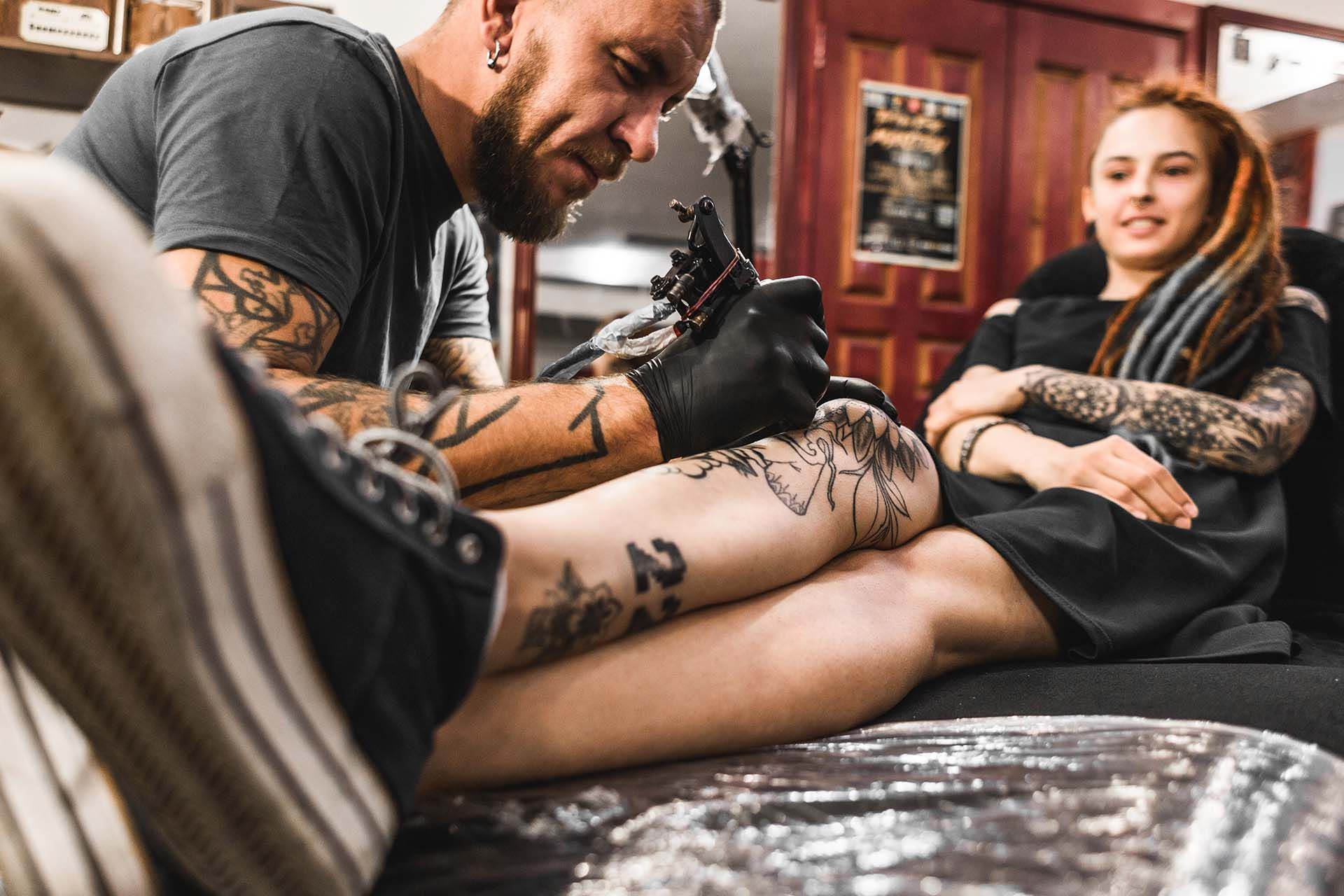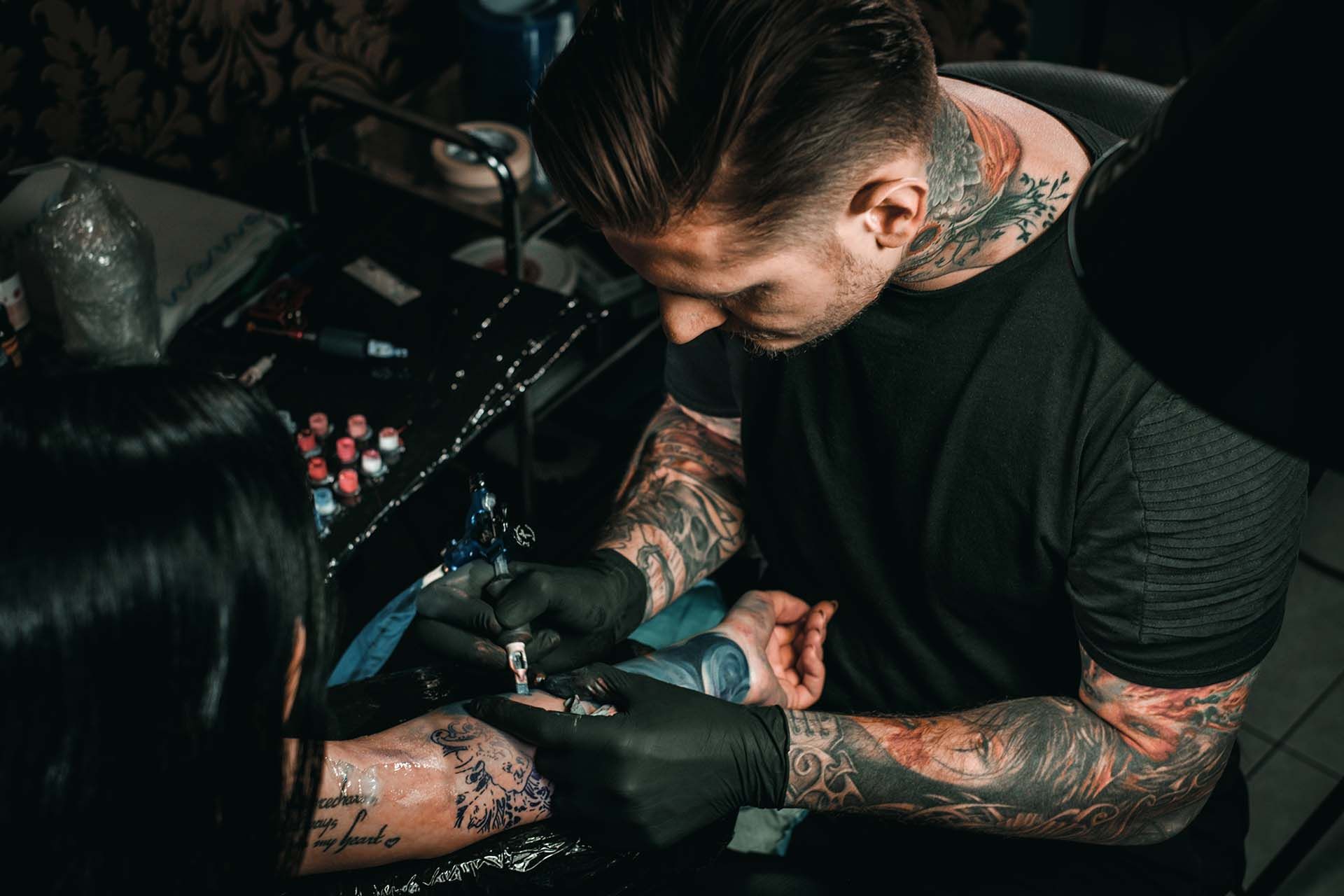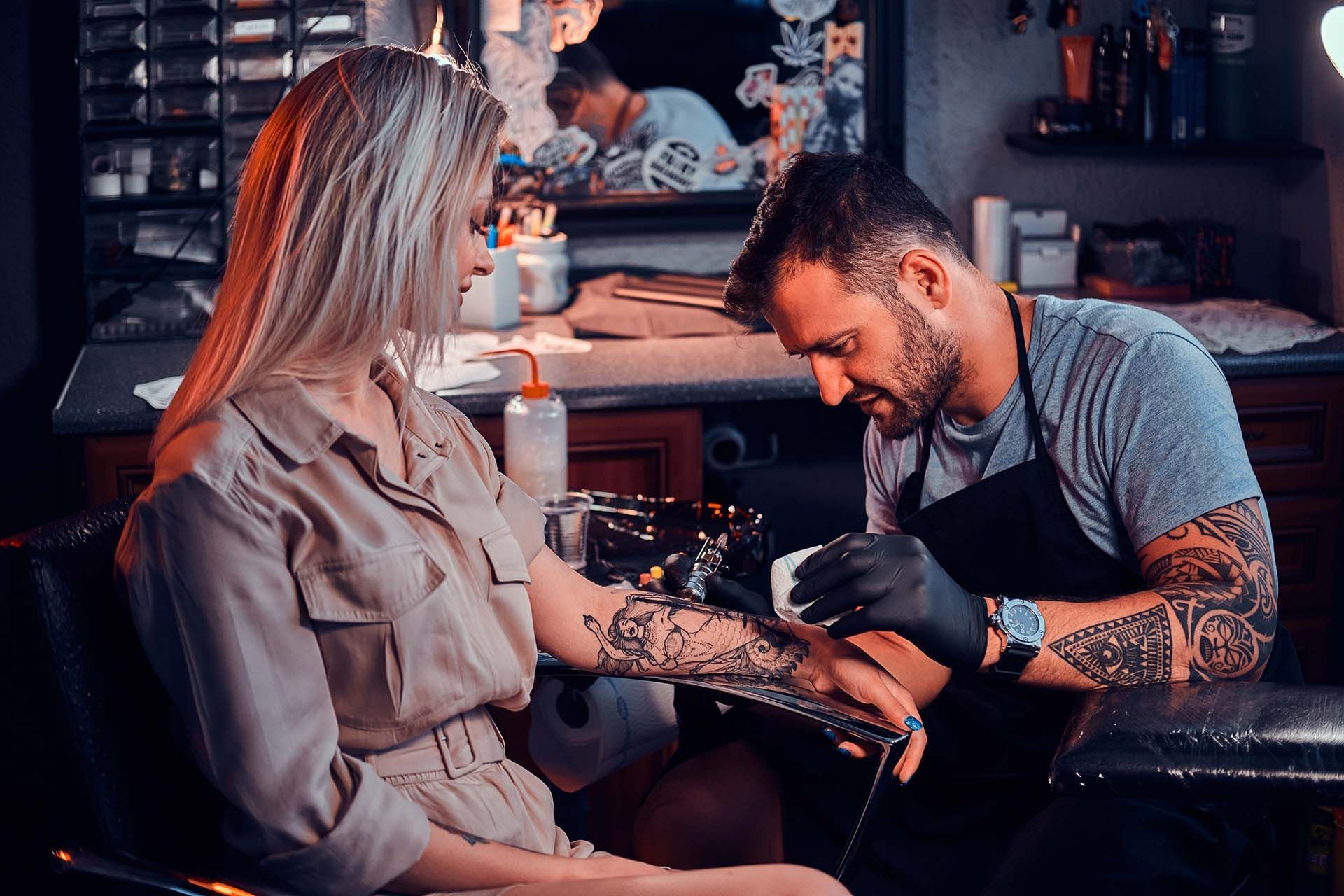Navigating Legal and Health Department Compliance for Tattoo Studios: A Comprehensive Guide
Introduction
The tattoo industry is a vibrant and creative field, but running a successful tattoo studio involves more than just artistry. Legal and health department compliance is crucial to protect your clients, staff, and business. Non-compliance can lead to severe consequences, including hefty fines, license revocation, or even studio closure. This guide provides tattoo studio owners and managers with a clear understanding of the regulations they must follow to operate legally and safely.
Understanding Regulatory Agencies
Navigating the complex web of regulations requires familiarity with the various agencies that govern tattoo studios. From local health departments to federal organizations, each plays a specific role in ensuring safety and compliance. Understanding these agencies and their requirements is the first step toward operating a lawful and successful studio.
Local Health Departments
- Role: Inspect and license tattoo studios, enforce local health codes.
- Requirements: Regular inspections, adherence to sanitation and sterilization protocols.
State Health Departments
- Role: Oversee statewide regulations and licensing for studios and artists.
- Requirements: Obtain state-specific licenses, complete approved training programs.
Occupational Safety and Health Administration (OSHA)
- Role: Ensure workplace safety nationwide.
- Key Regulation: Bloodborne Pathogens Standard
- Requires an Exposure Control Plan.
- Mandates annual training on bloodborne pathogens for all staff.
Environmental Protection Agency (EPA)
- Role: Regulate disposal of hazardous and biomedical waste.
- Requirements: Proper disposal methods for needles, inks, and contaminated materials.
Food and Drug Administration (FDA)
- Role: Monitor the safety of tattoo inks and pigments.
- Requirements: Use only FDA-approved inks and pigments, report adverse reactions.
Local Zoning and Building Departments
- Role: Enforce zoning laws and building codes.
- Requirements: Obtain building permits for interior remodels and changes, comply with occupancy standards.
Department of Labor
- Role: Enforce employment laws.
- Requirements: Adhere to wage and hour regulations, correctly classify workers (employee vs. independent contractor).
Licensing and Permits
Securing the appropriate licenses and permits is foundational to your studio's legal operation. This section guides you through the necessary steps to obtain the required documentation, ensuring you're fully authorized to conduct business.
Obtaining a Tattoo Studio License
- Application Process:
- Submit an application to your local health department.
- Provide details about the studio location, floor plan, and sanitation procedures.
- Required Documentation:
- Proof of completion of a bloodborne pathogens training course.
- Inspection reports and approval from building and zoning departments.
- Fees:
- Vary by location; check with the local city or county for details.
- Note on Taxes:
- Some states require separate registration with different state agencies to be complete with this step. For example, in Washington State a tattoo studio business license is created with the Secretary of State and then a separate Department of Revenue account must be created using the state business license information. Check the requirements for your state and city carefully and don’t hesitate to call for assistance.
Tattoo Artist Certification
- Qualifications:
- Complete an approved apprenticeship or training program.
- Pass a written and practical exam in some states.
- Continuing Education:
- Some states require ongoing education to stay updated on safety practices.
Business Licenses and Permits
- Register Your Business:
- Choose a business structure (e.g., LLC, partnership).
- Register with your state's Secretary of State.
- Tax Permits:
- Obtain an Employer Identification Number (EIN) from the IRS.
- Apply for state and local tax permits as required.
Building and Occupancy Permits
- Building Permits for Interior Remodels:
- Required for structural changes, electrical work, or plumbing modifications.
- Submit plans to the local building department for approval.
- Occupancy Permits:
- Ensure the space meets safety codes, including fire safety regulations.
- Schedule inspections with the fire department and building officials.
Health and Safety Compliance
The health and safety of your clients and staff are paramount. Adhering to strict health protocols not only protects everyone involved but also enhances your studio's reputation. This section outlines the key health and safety standards you must uphold.
Bloodborne Pathogens Standards
- Exposure Control Plan:
- Develop a written plan outlining procedures to eliminate or minimize exposure.
- Include methods of compliance, hepatitis B vaccination provisions, and post-exposure evaluation.
- Mandatory Training:
- Annual training for all staff on bloodborne pathogens and proper safety protocols.
Sterilization and Sanitation Protocols
- Equipment Sterilization:
- Use autoclaves to sterilize non-disposable equipment.
- Maintain sterilization records and conduct regular spore tests.
- Workspace Sanitation:
- Clean and disinfect surfaces between clients.
- Use disposable barriers where appropriate.
Personal Protective Equipment (PPE)
- Usage:
- Wear gloves, masks, and protective clothing during procedures.
- Change gloves between clients and when contaminated.
Client Consent and Record-Keeping
- Informed Consent Forms:
- Provide detailed forms explaining the procedure, risks, and aftercare instructions.
- Obtain signatures before starting any tattoo work.
- Confidentiality:
- Store client records securely to protect personal information.
Waste Disposal Procedures
- Sharps Disposal:
- Use FDA-approved sharps containers for needles and other sharp objects.
- Arrange for proper disposal through licensed medical waste services.
- Biomedical Waste:
- Follow EPA and local guidelines for disposing of contaminated materials.
Facility Requirements
Your studio's physical environment must meet specific standards.
Studio Layout and Design
- Work Area Separation:
- Designate separate areas for tattooing, sterilization, and waiting.
- Ensure surfaces are non-porous and easily cleanable.
- Client Privacy:
- Provide privacy screens or rooms for client comfort.
Equipment Standards
- Approved Equipment:
- Use tattoo machines and equipment that meet industry standards.
- Maintenance:
- Regularly inspect and service equipment.
- Keep maintenance logs.
Ventilation and Air Quality
- Proper Ventilation:
- Install adequate ventilation systems to reduce airborne contaminants.
- Compliance:
- Meet local health codes regarding indoor air quality.
Employee Training and Policies
Well-trained staff are integral to maintaining compliance and delivering high-quality service. Establishing clear policies and providing ongoing education fosters a culture of safety and professionalism within your studio.
Mandatory Training Programs
- Health and Safety Education:
- Provide training on hygiene practices, emergency procedures, and first aid.
- Regulatory Updates:
- Keep staff informed about changes in laws and industry best practices.
Employee Manuals
- Policies and Procedures:
- Develop a comprehensive manual covering workplace conduct, client interactions, and compliance protocols.
- Accessibility:
- Ensure all employees have access to the manual and understand its contents.
Compliance Enforcement
- Regular Audits:
- Conduct internal checks to ensure policies are followed.
- Disciplinary Measures:
- Establish clear consequences for non-compliance.
Advertising and Marketing Compliance
Promoting your studio effectively requires adherence to legal standards in advertising. Ethical marketing practices not only keep you compliant but also build trust with your clientele.
Use of Client Images
- Consent Forms: Obtain written permission before using client images for marketing to avoid legal liability and takedown requests against artists and the studio. This can be made part of a standard tattoo agreement used in the studio.
- Privacy Respect: Honor any client requests regarding anonymity or image usage.
Digital Marketing Regulations
- Email Marketing:
- Adhere to the CAN-SPAM Act by providing opt-out options and accurate sender information. Studio marketing tools like Serenity, MailChimp, MailerLite, and others provide this capability automatically so that you are compliant with marketing messages being sent.
- SMS Messaging Compliance:
- The FCC and other in-country agencies outside of the USA require SMS message senders for business purposes to identify themselves and request approval for the SMS messaging campaign they will use in their business. This can take 10 business days to achieve once the application is submitted. The purpose of these regulations is to minimize SMS spam and to allow local communications government agencies to easily stop businesses sending spam text messages.
- When signing up for Serenity or business phone service or A2P (Application-to-Person) messaging approval from the FCC is necessary. Until A2P approval is achieved the phone number is active for receiving and making phone calls and receiving SMS messages, but not sending SMS messages.
Staying Informed and Seeking Assistance
Regulations can change, and staying informed is key to ongoing compliance. Leveraging available resources and seeking professional guidance when needed helps you navigate the complexities of the legal landscape.
Monitoring Regulatory Changes
- Subscriptions:
- Sign up for updates from health departments and regulatory agencies.
- Industry Associations:
- Join organizations like the Alliance of Professional Tattooists (APT) for resources and support.
Professional Consultation
- Legal Counsel:
- Consult attorneys who specialize in tattoo industry regulations.
- Compliance Consultants:
- Hire professionals to conduct studio audits and recommend improvements.
Educational Resources
- Workshops and Seminars:
- Attend events focusing on compliance, safety, and industry trends.
- Online Materials:
- Utilize guides and checklists from agencies like OSHA and the FDA.
Consequences of Non-Compliance
Understanding the serious repercussions of non-compliance underscores the importance of adhering to regulations. Protecting your business means being proactive in meeting all legal and health standards.
Legal Penalties
Violations can result in substantial fines, sanctions, or even criminal charges. These penalties can have long-lasting effects on your business operations.
Business Impact
Beyond legal consequences, non-compliance can damage your reputation and lead to financial losses. Clients may lose trust, and attracting new business becomes more challenging.
Liability Risks
Non-compliance increases the risk of lawsuits from clients or employees. It may also affect your ability to obtain or maintain necessary insurance coverage.
Conclusion
Compliance with legal and health regulations is not just a legal obligation but a commitment to excellence in your craft. It safeguards your clients, your team, and the longevity of your business. By proactively addressing the requirements outlined in this guide, you position your studio for success and set a standard of professionalism in the tattoo industry.
Next Steps:
- Review Compliance Practices:
- Regularly assess your studio's adherence to regulations.
- Seek Professional Guidance:
- Don't hesitate to consult experts to ensure all aspects are covered.
- Commit to Continuous Improvement:
- Stay informed and adapt to new laws and industry developments.
Resources:
- OSHA Bloodborne Pathogens Standard: OSHA Website
- FDA Tattoo Inks Information: FDA Website
- EPA Medical Waste Guidelines: EPA Website
- FCC A2P Messaging Compliance: FCC Website
- Alliance of Professional Tattooists (APT): APT Website
Disclaimer: This publication and the information included in it are not intended to serve as a substitute for consultation with business consultants and professionals. Specific business, financial, legal issues, concerns and conditions always require the advice of appropriate professionals. Any opinions expressed are solely those of the participant and do not represent the views or opinions of this company.










